Episodes

6 days ago
6 days ago
Biographical Bytes from Bala: Laurel Hill West Stories #053
Architecture expanded during the 19th century period of European colonialization, ignoring influences from Asia and Africa. Although not buried at Laurel Hill, African American architect Julian Abele is thought to have designed mausoleums at both properties. Walter R. Livingston, Jr., interred at Laurel Hill West, is considered Philadelphia's top Black post-War architect; his masterwork is the Zion Baptist Church on North Broad Street.

Thursday Feb 05, 2026
Thursday Feb 05, 2026
All Bones Considered: Laurel Hill Stories #083, part 4
Mpozi Mshale Tolbert was a West Philadelphia native who became a beloved photojournalist and DJ in Indianapolis. Despite his 6'6" frame and waist-length dreadlocks, he was described by all who knew him as a gentle giant. Two murals of Mpozi exist in Indianapolis’s Broad Ripple and Fountain Square neighborhoods, celebrating his life and work.

Wednesday Feb 04, 2026
Wednesday Feb 04, 2026
All Bones Considered: Laurel Hill Stories #083, part 3
Reverend John Komai, son of a Krahn chief, and his wife Julia Komai were prominent Liberians who fled their homeland during the 1989 coup, leaving behind their estate and enduring a perilous journey to Sierra Leone before resettling in the United States. John became a community leader for Liberian refugees in the U.S., working as a counselor and continuing efforts to support Liberian refugees. Julia was a political activist who had been jailed in 1979 for opposing human rights abuses and later served as Assistant Director of the African Unity Conference Center. Julia died in a car accident in 2004, and John survived but required lifelong care until his death in 2012.

Tuesday Feb 03, 2026
Tuesday Feb 03, 2026
All Bones Considered: Laurel Hill Stories #083, part 2
Leonard Leland Smalls was a Baptist minister who dedicated much of his life to prison ministry and community development. After military service and education at Virginia Union University, he was ordained in 1956 and became the first Black minister certified as a prison chaplain in Pennsylvania. He was active in civil rights, associated with figures like Martin Luther King Jr., and involved in political activism including a 1967 mayoral candidacy focused on consumer fraud issues.

Monday Feb 02, 2026
Monday Feb 02, 2026
All Bones Considered: Laurel Hill Stories #083, part 1
Frances “Mom” Williams was a dedicated community leader and advocate for seniors and the disabled in Philadelphia. Despite an unsuccessful run for City Council in 1979, her influence extended through her family and her activism, leaving a lasting impact on her city and community.

Sunday Feb 01, 2026
Sunday Feb 01, 2026
All Bones Considered: Laurel Hill Stories #083 for February 1, 2026 for Black History Month
Frances “Mom” Williams was a dedicated community leader and activist in Philadelphia who campaigned for City Council in 1979 with a focus on seniors and neighborhood safety. Her son Hardy and Grandson Anthony became State Senators. This segment will be released as a separate podcast on February 2nd.
Rev. Leonard Leland Smalls became the first Black minister certified as a prison chaplain in Pennsylvania. Smalls associated with Martin Luther King Jr. and local activists, though he described himself as not nonviolent. Released as separate podcast on February 3rd.
Liberian native Julia Komai was a political activist who became an outspoken advocate for human rights and had been imprisoned before escaping to the United States. She died in a car crash, along with a former Vice President of her native land. Separate podcast on February 4th.
Mpozi Mshade Tolbert was deeply admired in two cities: in Philadelphia, he captured iconic images of the hip-hop scene, while in Indianapolis he became a beloved photojournalist and DJ, known for his genial spirit, generosity, and influence on the arts community. Separate podcast on February 5th.

Monday Jan 12, 2026
Monday Jan 12, 2026
Biographical Bytes from Bala: Laurel Hill West Stories #052 for mid-February 2026
Mary Scarpone Costanza was raised Roman Catholic. She claims she never met a Jew until she went to Temple University. After obtaining a degree in teaching, she developed an interest in art produced by victims of the Nazi Holocaust. It turned into her life work.

Tuesday Jan 06, 2026
Tuesday Jan 06, 2026
All Bones Considered: Laurel Hill Stories #082, part 5
In 18th- and 19th-century Pennsylvania, women played a central role in caring for the dying and the dead, performing tasks that combined practical, emotional, and ritual duties. Over time, the profession of undertaking evolved, becoming male-dominated and more specialized, reducing women’s involvement in death care. Early undertakers often apprenticed from trades like cabinetmaking, expanding into funeral services; Samuel Patch Frankenfield was a notable example who developed a family undertaking business.

Monday Jan 05, 2026
Monday Jan 05, 2026
All Bones Considered: Laurel Hill Stories #082, part 4
Script by Russell Dodge, narration by Joe Lex
Thomas Hewson Bache co-founded CHOP, the first children’s hospital in the United States. He also served as a Major in the Medical Corps, where he was involved in the Gettysburg Campaign and remained with wounded soldiers even as a prisoner of war. Bache also served as curator of the Mütter Museum from 1866 to 1885 and oversaw significant acquisitions like the Joseph Hyrtl skull collection. He was also involved with the Pennsylvania Institution for the Deaf and Dumb.

Sunday Jan 04, 2026
Sunday Jan 04, 2026
All Bones Considered: Laurel Hill stories #082 for January, 2026
Happy 200th Birthday!
Daniel Pabst
Daniel Pabst was a prominent 19th-century Philadelphia cabinetmaker known for his exceptional craftsmanship and distinctive designs, blending traditional Victorian styles with emerging artistic movements. His work served affluent clients and reflected evolving furniture styles from Renaissance revival to Modern Gothic. His work done with Frank Furness has been unsurpassed.

Saturday Jan 03, 2026
Saturday Jan 03, 2026
All Bones Considered: Laurel Hill Stories #082, Part 2
Happy 200th Birthday!
Henry Hagert: Prosecuting Catto's Accused Killer
Octavius Valentine Catto was a pioneering African American leader and activist in Philadelphia during the Reconstruction era, advocating for civil rights, voting rights, and racial integration. His assassination in 1871 during violent election-day riots marked a significant and tragic moment in Black American history. The prosecution of his alleged killer, Frank Kelly, was led by Henry S. Hagert, a distinguished Philadelphia lawyer and district attorney known for his meticulous legal skills.

Friday Jan 02, 2026
Friday Jan 02, 2026
All Bones Considered: Laurel Hill Stories #082 for January 2026 - Happy 200th Birthday!
Part 1 - Martha Coston: She Had a Certain Flare
Martha Coston significantly advanced maritime communication by developing pyrotechnic signal flares that could be seen day and night, improving naval operations and safety at sea. Ships originally used signal flags and lanterns to communicate, but these were limited by visibility and weather conditions, especially at night. Martha received her first patent in 1859, initially in Benjamin’s name, and after extensive testing and negotiations, the U.S. Navy purchased her patent in 1861 during the Civil War. Coston flares were crucial for naval communication, identifying friend or foe, and aiding in rescue operations, remaining in use until marine radios emerged in the 1930s. Martha and her sons expanded the business internationally, supplying various navies and services, with family members continuing operations into the late 19th century. Martha Coston died in 1904, with her invention enduring for decades; she was posthumously inducted into the National Inventors Hall of Fame in 2006.
Thursday Jan 01, 2026
Thursday Jan 01, 2026
All Bones Considered: Laurel Hill Stories #082 for January 1, 2026
It's January! Time for our annual 200th Birthday Bash for people born in 1826.
After Martha Coston was widowed at age 21, she used her husbands notes and reputation to invent airborne signal flares that saved hundreds of lives.
Henry Hagert was assistant District Attorney for the City of Philadelphia when he prosecuted a man for the murder of Civil Rights Activist Octavius V. Catto.
Daniel Pabst was the finest cabinetmaker in town and people waited years for him to create their household masterpieces, many of which are today in museums.
Dr. Thomas Hewson Bache was a co-founder of Children's Hospital of Pennsylvania, curator at the Mutter Museum, and a battlefield surgeon at Gettysburg. He was also Benjamin Franklin's great-great-grandson. Military historian Russ Dodge researched this one.
Samuel Frankenfield was a German immigrant carpenter who discovered there was money to be made as a coffin builder and successfully switched professions from carpenter to mortician.
All were born in 1826.

Friday Dec 19, 2025
Friday Dec 19, 2025
Biographical Bytes from Bala: Laurel Hill West Stories #051, Part 4
James "Jimmy" Bland is NOT buried at Laurel Hill, but he serves as a logical link between minstrelsy and mummery. Many people called him the "Black Stephen Foster," and songs he wrote like "Carry Me Back to Old Virginny" and "Hand me down My Walking Cane" have become standards. One of his more popular tunes, "Oh Dem Golden Slippers" became the theme song for Philadelphia Mummers.

Thursday Dec 18, 2025
Thursday Dec 18, 2025
Biographical Bytes from Bala: Laurel Hill West Stories #051, part 3
Born in 1848 in New York to French immigrant parents, Frank Dumont became a seminal figure in minstrel culture. He began to perform as a boy and joined Christy’s Minstrels by 1862, a troupe that set the enduring standard format for minstrel shows: a semicircle stage arrangement with an interlocutor (emcee) in the center and end men characters Mr. Tambo and Mr. Bones at the sides. The interlocutor opened the show with the phrase, “Gentlemen, be seated,” which became iconic. Dumont later joined other minstrel troupes and eventually settled in Philadelphia around 1880, where he introduced popular songs such as “Silver Threads Among the Gold” and “When You and I Were Young, Maggie,” both significant sentimental ballads of the era. He "died with his boots on," as it were as he sat in the box office for a St. Patrick's Day matinee.

Wednesday Dec 17, 2025
Wednesday Dec 17, 2025
Biographical Bytes from Bala: Laurel Hill West Stories #051, part 2
E.F. Dixey & John Carncross were the bedrock of Philadelphia minstrelsy for more than 20 years. Many people did not feel a trip to the Quaker City was complete if they didn't make a stop at the 11th Street Burnt Cork Opera House. The podcast also discusses pigmentocracy, historical nonracial uses of blackface, scientific racism, Black Philadelphia society in the mid-19th century, and much more.

Tuesday Dec 16, 2025
Tuesday Dec 16, 2025
Biographical Bytes from Bala: Laurel Hill West Stories #051, Part 1
Human performance has ancient roots in ritual, storytelling, music, and dance, evolving from prehistoric communal activities to formalized theater in ancient civilizations.
Mumming originated in pre-Christian seasonal rites involving masked performances symbolizing death and rebirth, later becoming popular folk dramas in medieval Europe with themes of good vs. evil and resurrection. Minstrels were traveling musicians and storytellers who entertained courts and villages, distinct from troubadours who focused on courtly love poetry.
In the 19th century, minstrel shows featured white performers in blackface who caricatured African Americans through music and comedy, and popularized certain instruments and songs but perpetuating harmful stereotypes. Minstrelsy influenced American entertainment forms but reinforced racist myths, using exaggerated dialects, stereotypical characters, and appropriated dances, with complex legacies acknowledged by modern scholarship.
Sunday Dec 14, 2025
Sunday Dec 14, 2025
Biographical Bytes from Bala #051
Philadelphia has been the home of Mummers for centuries and you can still see their antics every New Year's Day. For the latter part of the 19th century, Philadelphia was also the place to see a minstrel show. The Carncross & Dixey company made both of its owners rich men and provided entertainment for thousands of Philadelphians for mere pennies. Frank Dumont literally wrote the book on how to perform a minstrel show. Although James A. Bland is not buried at Laurel Hill, his music is still beloved by millions of people around the world, and one of his songs has been adopted by the Mummers as their theme.

Friday Dec 05, 2025
Friday Dec 05, 2025
All Bones Considered: Laurel Hill Stories #041, part 4
Benjamin Wood Richards' tenure as mayor coincided with challenges such as public health crises, infrastructure needs, and social tensions in Philadelphia. In 1819, Richards co-founded a large commission house in Philadelphia, a business acting as an intermediary for securities and commodities transactions, earning income through commissions. He served in the Pennsylvania legislature in 1827, advocated for public schools, was a canal commissioner, and was appointed by President Andrew Jackson to direct the U.S. Bank and Mint. Appointed mayor in 1829 and elected in 1830-31, wealthy merchant Stephen Girard died during his term. Richards helped found the Girard Trust Company in 1835, serving as its president until his death, with the bank later becoming Girard Bank. When Richards toured Europe, he was inspired by Paris’s Père Lachaise Cemetery, and helped found Philadelphia’s Laurel Hill Cemetery, where he was a major stakeholder.

Thursday Dec 04, 2025
Thursday Dec 04, 2025
All Bones Considered: Laurel Hill Stories #081, part 3
Nathan Dunn was born to Quaker parents in New Jersey. After early financial difficulties and disownment by the Philadelphia Quaker Meeting, he sailed to China around 1818 to rebuild his fortunes. In Canton, he gained respect by avoiding the opium trade and engaged in commerce involving tea, silks, porcelain, and other goods. In 1835 he joined with John Jay Smith and others to form Laurel Hill Cemetery, for which he served as primary financial backer.
Dunn’s decade-long residence in China allowed him to collect a vast array of authentic Chinese artifacts, reflecting a broader American interest in understanding China beyond commerce. His collection later formed the basis of the Chinese Museum in Philadelphia, opened in 1838, one of the first American institutions dedicated exclusively to Chinese culture. The museum featured thousands of objects, life-size wax figures, dioramas, and detailed exhibits of daily life, religion, and governance in China. Dunn transferred the museum to London in 1842, where it was visited by Queen Victoria and Prince Albert. Late in life, he was accused of illegal homosexual activity and put on trial for the crime of sodomy.

Wednesday Dec 03, 2025
Wednesday Dec 03, 2025
From All Bones Considered: Laurel Hill Stories #081, part 2 - released December 3, 2025.
When Laurel Hill Cemetery co-founder John Jay Smith died in 1881 at age 83, he left behind a significant legacy in Philadelphia’s cultural and civic institutions. His obituary highlighted his diverse roles as librarian, editor, cemetery founder, and member of the Society of Friends, as well as his family lineage connected to other notable Philadelphia founders. Other accomplishments included introducing paper made from straw and inventing something that sounds suspiciously like the Book of the Month club a century before the real thing.

Tuesday Dec 02, 2025
Tuesday Dec 02, 2025
Part 1 of All Bones Considered: Laurel Hill Stories #081: Laurel Hill - In the Beginning
Inspired by the allegory of Old Mortality, Laurel Hill was founded in 1836 by John Jay Smith and other reform-minded citizens as a response to overcrowded urban graveyards and changing attitudes toward death and memorialization. Modeled after rural cemeteries like Paris’s Père Lachaise, Laurel Hill emphasized scenic landscaping, remembrance, and inclusivity for various religious and social groups, although early regulations still reflected social prejudices. The founders established distinctive rules, invested in prominent sculptures and monuments, and promoted the cemetery through “celebrity corpses” and innovative designs by architects such as John Notman. Laurel Hill’s development mirrored broader trends in American burial practices, the rural cemetery movement, and the expansion of non-sectarian spaces for commemoration and education, while also sparking debates about the relationship between beauty, solemnity, and social class in cemetery culture.

Monday Dec 01, 2025
Monday Dec 01, 2025
All Bones Considered: Laurel Hill Stories #081 for December 1, 2025
Laurel Hill Cemetery was founded in 1835 and opened in 1836 by four men with strikingly different backgrounds, but with a common cause - to give the people of Philadelphia a final resting place worthy of the "Athens of America."
John Jay Smith was a polymath librarian / horticulturalist who had a rather unpleasant experience in seeking the grave of a recently deceased daughter and vowed to change the way people commemorated their dead.
Nathan Dunn was initially a failed merchant who regained his fortunes in the Chinese trade and became the financial backing for the cemetery corporation.
Benjamin Richards was ex-mayor and a business partner of Smith's who on a trip to Europe was inspired by the revolutionary Pere Lachaise Cemetery in Paris to provide something similar in Philadelphia.
Along the way you will also learn about Sir Walter Scott, varying splinter sects of Christianity like the Swedenborgians, what the Opium Wars were really about, the history and significance of The Library Company of Philadelphia, with a brief look at Chinese male-male love as commemorated in the legend of the Cut Sleeve.

Sunday Nov 16, 2025
Sunday Nov 16, 2025
Lon Jourdet was an All-American footballer who also excelled at basketball. He spent 23 non-consecutive years as coach at Penn and captured more than 200 victories, but he left in 1943 with a bitter taste in his mouth for the University, which has come close to forgetting him. He ended his own life in 1959.
Saturday Nov 15, 2025
Saturday Nov 15, 2025
Biographical Bytes from Bala: Laurel Hill West Stories #050
The sport basket ball started on the day James Naismith nailed 13 rules to a gymnasium door in Springfield Massachusetts. The game spread quickly, especially among college men (and women). University of Pennsylvania was an early adapter, and four Penn grads made their names in basketball.
Ellwood Rutschman was a decent player but found his niche as the first professional basketball referee. He set the standards for fairness and ethics in the sport.
"Kid" Keinath was the Quakers' second coach after serving as captain. He was followed by his good friend "Artie" Kiefaber, namesake of the MVP award.
Lon Jourdet won more games in the 20th century than any other Penn basketball coach and was an inventor of the zone defense. But the game passed him by, and his firing in 1943 left him an embittered man.

Thursday Nov 06, 2025
Thursday Nov 06, 2025
All Bones Considered: Laurel Hill Stories #080, Part 5
Hugh Craig, Jr., was a successful businessman whose life became the Troop, where he served both as treasurer and as quartermaster. The men loved him, and they still hold a "Hughie's Breakfast" at the conclusion of every deployment.

Wednesday Nov 05, 2025
Wednesday Nov 05, 2025
All Bones Considered: Laurel Hill Stories #080, Part 4
Joseph Lapsley Wilson is better remembered today for his arboretum than his troop membership. It still exists today as the Barnes Arboretum at St. Joseph's University. He introduced several species of Asian trees to the United States. His portrait by Thomas Eakins hangs in the Armory Museum.

Tuesday Nov 04, 2025
Tuesday Nov 04, 2025
All Bones Considered: Laurel Hill Stories #080, part 3
Archibald Loudon Snowden was a polymath who served as Captain of the Troop, as well as postmaster for the city, supervisor of the Philadelphia mint, ambassador to Spain, along with numerous other roles. His portrait is in the armory dining room, and his descendants entertain millions of people.

Monday Nov 03, 2025
Monday Nov 03, 2025
All Bones Considered #080, Laurel Hill Stories, part 2
Fairman Rogers lived a life of elegant wealth, but made himself useful as an expert in many aspects of science, especially civil engineering. He was elected briefly as captain of the Troop. He also excelled was as a coachman, especially when he took his magnificent black and red four-in-hand through Fairmount Park. Philadelphia artist Thomas Eakins captured Rogers in a painting that is the first to accurately demonstrate motion in animals.

Sunday Nov 02, 2025
Sunday Nov 02, 2025
All Bones Considered: Laurel Hill Stories #080, part 1
The First Troop Philadelphia City Cavalry, or "First City Troop", was organized in 1774 as the Light Horse of the City of Philadelphia, often referred to as the Philadelphia Light Horse, one of the first patriotic military organizations established in the American Revolution. Although part of the National Guard system, it is a free-standing unit with its own uniforms and armory. It has served in virtually every war and skirmish ever entered by the United States. After a quarter century of service, it still proudly serves the American populace and the people of Philadelphia.

Saturday Nov 01, 2025
Saturday Nov 01, 2025
All Bones Considered: Laurel Hill Stories #080
November 1, 2025
First Troop Philadelphia City Cavalry, better known as First City Troop is in the midst of celebrating its semiquincentennial before the country does. Each segment will also be released separately.
Part 1 for November 2: a brief history of the First City Troop's First 150 years
Part 2 for November 3: Fairman Rogers was the finest coach driver in the land, especially the four-in-hand variety. His portrait by Thomas Eakins is a classic.
Part 3 for November 4: Archibald Loudon Snowden was a perfect example of a late-19th century polymath, becoming an expert in coin minting, the postal service, fire insurance, and Fairmount Park in addition to his years as a captain of the troop.
Part 4 for November 5: Joseph Lapsley Wilson quietly developed one of the finest arboretums in the country which continued under the care of Dr. Albert C. Barnes, who bought his property for a building in which to display his collection of artwork. It is now party of St. Joseph University.
Part 5 for November 6: Hugh Craig, Jr., was the grease that kept the troop moving and the glue that kept it together for more than 30 years, yet he lay in an unmarked grave at Laurel Hill East for more than a century.

Sunday Oct 19, 2025
Sunday Oct 19, 2025
Biographical Bytes from Bala: Laurel Hill West Stories #049, part 4
Oscar Rosier had married the prettiest salesgirl in town, who soon bore him a child. But Oscar had a roving eye which was apparently set on his secretary, another beauty and purported friend of his wife. It did not end well for anyone.

Saturday Oct 18, 2025
Saturday Oct 18, 2025
Biographical Bytes from Bala: Laurel Hill West Stories #049, part 3
Captain Clayton Erb decided to marry and produce an heir at age 50 and selected a young divorcee to serve as mistress of his Red Gables estate in Delaware County. When the woman's sister got involved, things went bad in a hurry. The court case revealed the mansion had been a house of horrors.

Friday Oct 17, 2025
Friday Oct 17, 2025
Biographical Bytes from Bala: Laurel Hill West Stories #049, part 2
John Hobbs knew he was being stalked and told his brother that if he didn't leave town soon, he would be a dead man. He was proved right when the woman he was avoiding caught up with him at the train station.
Thursday Oct 16, 2025
Thursday Oct 16, 2025
Biographical Bytes from Bala: Laurel Hill West Stories #049, part 1
Intimate Partner Violence dates to pre-biblical times and violence against women was sanctioned by laws until only recently. Up to 40% of all homicides involve a domestic partner. Men tend not to report abuse when it happens, although attitudes are changing. The adage that “Men are afraid women will laugh at them. Women are afraid men will kill them" is sometimes reversed. Here are three women who killed their intimate partner; their stories are anything but simple and straightforward.
Wednesday Oct 15, 2025
Wednesday Oct 15, 2025
Biographical Bytes from Bala #049
John Hobbs was stalked and shot at a railway station in 1891 by a spurned lover.
CPT Clayton Erb was shot and killed, either by his wife or his sister-in-law, during one of many knockdown drag-out battles that had occurred in the brief marriage at the Red Gables mansion in Delaware County.
In 1922, businessman Oscar Rosier and his secretary Jerry were mortally wounded by Rosier’s wife, who was thought to be the prettiest salesgirl in Philadelphia. Oscar lived long enough to write a will, which completely blocked his soon-to-be widow from his modest estate.
These three men were victims of mariticide. Their stories follow.

Monday Oct 06, 2025
Monday Oct 06, 2025
ABC079, Part 5
The tale of the arsenic widows of Philadelphia will never be told fully, and hundreds of men may have died at their hands. Two of the women who looked the guiltiest were saved from a life in prison by brilliant African American defense attorney Raymond Pace Alexander.

Sunday Oct 05, 2025
Sunday Oct 05, 2025
ABC #079, part 4
Victor "Babe" Andreoli was raised in East Falls in a large, hardworking family, but fell in with bad company and was sentenced to life in prison. It didn't go well.

Saturday Oct 04, 2025
Saturday Oct 04, 2025
ABC-079, part 3
Willie was one of six brothers in the crime business. They never bothered to affiliate with the Mafia, but three of the six brothers were picked off during gang wars. Willie was one of the victims.

Friday Oct 03, 2025
Friday Oct 03, 2025
ABC079 - part 2
Potito "Little Petey" Bisciotti was on the lower rungs of the mob but wanted to move up in the numbers racket. A rendezvous with fellow gangsters led to his untimely death by sawed-off shotgun.

Thursday Oct 02, 2025
Thursday Oct 02, 2025
ABC079, Part 1: How and Why Crime Emerged
In neighborhoods across the city, ethnic groups clashed over control of gambling operations, protection, the numbers racket, prostitution, and eventually bootlegging. These criminal enterprises weren’t just about making money, but were also about gaining power and influence, sometimes even forging ties with local politicians and the police.

Wednesday Oct 01, 2025
Wednesday Oct 01, 2025
All Bones Considered: Laurel Hill Stories #079
This episode tells of Laurel Hill residents remembered today for their involvement with organized crime in the 1930s and 1940s. After the full podcast today, each segment will be released individually.
Petito "Little Petey" Bisciotti was a wannabe numbers man killed in what has become known as the Flag Day Massacre.
Willie Lanzetti was one of six notorious brothers in constant legal troubles; he met his end in a gangland slaying before his body was cremated and the ashes scattered at Laurel Hill West.
East Falls resident Victor “Babe” Andreoli was a cop-killer and Eastern State Penitentiary escapee who was gunned down at a breakfast café in Chester.
Finally, you’ll hear part of the long sordid tale of the arsenic poisoning for insurance ring that took dozens of lives in the late 1930s. Two of the accused with the most circumstantial evidence against them were found “not guilty” in their trials where they were represented by Raymond Pace Alexander.
Let’s get started.

Sunday Sep 14, 2025
Sunday Sep 14, 2025
Biographical Bytes from Bala #048
Today, I shine a spotlight on an all-but-forgotten Philadelphia politician John Henry Fow, known as “Foghorn” for his stentorian voice and “Ducky” for his quirky walk.
Fow was a tough lawyer with an uncanny knack for finding what was unconstitutional. He wasn’t afraid to challenge accepted knowledge, and debunked the story behind the famous “Washington Crosses the Delaware” painting and seriously challenged the Betsy Ross flag anecdote. Fow’s love for practical jokes kept his colleagues constantly on their toes, while his razor-sharp tongue silenced many rivals in court.
Despite his outsized personality and invaluable contributions, his name has faded from public memory. Join me as we rediscover John Henry Fow—Foghorn for the Talk, Ducky for the Walk—and celebrate his impact on Pennsylvania history.

Saturday Sep 06, 2025
Saturday Sep 06, 2025
Part 5 of All Bones Considered: Laurel Hill Stories #078
Edgar Loftus was a Wharton grad who rose in the Army Air Corps to Lieutenant Colonel. On VE Day, he was ranking officer in charge when a small squadron of German Aces landing their aircraft at his air base to end their war. The story is remarkable.

Friday Sep 05, 2025
Friday Sep 05, 2025
Part 4 of All Bones Considered: Laurel Hill Stories #078
Despite his very French name, Jacques Louis Francine was from a well-established Philadelphia family. HIs grandfather was a Union general, his father was the world's expert on tuberculosis. Jacques was the ultimate outdoorsman, collecting specimens for the Academy of Natural Sciences in northern Canada and starting a canoe camp. But he was also a decorated fighter pilot and bomber pilot with more than 30 missions to his name. He is buried in section V at Laurel Hill East.

Thursday Sep 04, 2025
Thursday Sep 04, 2025
Part 3 of All Bones Considered: Laurel Hill Stories #078
In 1924, Danish-born Holger Hoiriis moved to the United States and bought an airplane. After barnstorming for a few years, he hitched up with German American photographer Otto Hillig who wanted to cross the ocean. Holgier thus became the first pilot to carry a paying customer across the Atlantic. He was also the first pilot to complete night airmail delivery for the US Postal service. After the war and when Holger was no longer around to confirm or deny, Otto spun a tale about being hijacked by Nazi agents in their hanger at Grossinger's in the Catskills. This led to a futile treasure hunt more than 50 years later. Holger is buried at Laurel Hill East.

Wednesday Sep 03, 2025
Wednesday Sep 03, 2025
Part 2 of All Bones Considered: Laurel Hill Stories #078
Beer heir Grover Cleveland Bergdoll was an early adaptor to flight and it is his Wright Brothers biplane that suspends from the ceiling of the Franklin Institute. He was also the most notorious American Draft Dodger during the Great War.
You met Hobart Amory Hare "Hobey" Baker in an earlier podcast when fellow guide Paul Sookiasian and I talked about his athletic prowess; I return now to discuss his life as a pilot, and add new information uncovered only last year by ESPN.
Benjamin Lee II eagerly shipped off to be a flier before he finished his college days at Penn. His plane went down and his body never found. He has a cenotaph at Laurel Hill East.

Tuesday Sep 02, 2025
Tuesday Sep 02, 2025
Part 1 of All Bones Considered: Laurel Hill Stories #078
The first American balloon flight took place from Philadelphia, as did the great balloon riot of 1819. Thaddeus Lowe, who has relatives at Laurel Hill East, was the man who introduced the balloon to American warfare when he helped guide Union troops from 500 feet above the earth during the Battle of Fair Oaks. Until replaced by spy planes in the 20th century, balloons were one of the best surveillance tools in warfare.
Monday Sep 01, 2025
Monday Sep 01, 2025
Thaddeus Lowe is not buried at Laurel Hill, but has many connections there. He was an balloon aeronaut during the Civil War, thus father of the United States Air Force.
Grover Cleveland Bergdoll's family is in a huge mausoleum at Laurel Hill West. An early student of the Wright brothers, he became a poster child for privilege when he dodged the draft during the Great War. Hobey Baker's athletic gifts made him a natural pilot, but he crashed and died on the day he was scheduled to return stateside. Benjamin Lee II eagerly awaited his opportunity for a dogfight, but he was killed during a training accident.
Holger "Hold Your Horses" Hoiriis was a Danish American flyer who made history when he flew across the Atlantic with a paying customer.
Jacques Louis Francine was an All-American boy who used his flying skills to explore wilderness regions of northern Canada. His wartime service was very impressive.
Edgar Loftus was commanding officer at a European Air Base in the final days of the war when Hitler's Iron Eagle made a surprise landing at his base, but then perversely refused to surrender.
Fold up your tray table, fasten your seatbelt, and get ready as we take off into the world of pilots at Laurel Hill.

Thursday Aug 14, 2025
Thursday Aug 14, 2025
Biographical Bytes from Bala #057 for mid-August 2025
Sara Louisa Oberholtzer was a feminist, an abolitionist, and a temperance advocate who helped establish school bank accounts for millions of American children during the "Thrift" movement of the late 19th and early 20th centuries. Her legacy for thrift in Philadelphia is second only to Benjamin Franklin's.

Tuesday Aug 05, 2025
Tuesday Aug 05, 2025
From All Bones Considered: Laurel Hill Stories #077, Part 4
Antoinette Westphal was Drexel through and through. While a student there in the late 1950s, she captained both the field hockey and lacrosse teams, and wrote the newspaper's gossip column. She married fellow grad Ray Westphal and they started a family as Ray turned an idea into a successful business. Antoinette started her own spa, and took an interest in Drexel's art collection. After her death, Ray's generous donation caused creation of the Antoinette Westphal College of Media Arts and Design.

Monday Aug 04, 2025
Monday Aug 04, 2025
From All Bones Considered: Laurel Hill Stories #077, part 3
Joseph Wharton was a Quaker businessman and philanthropist whose work is still felt throughout the city and the world. He was the primary founder of Swarthmore College. His business acumen allowed the US Mint to make a healthy profit in the years he was involved. Fisher Park in northeast Philadelphia was his gift to the city. The Wharton State Forest in New Jersey is the largest mass of land owned by the state. And, of course, the world-famous business school that bears his name has graduated more eventual billionaires than any school in history. He is buried under a simple marble stone in a family plot at Laurel Hill East.

Sunday Aug 03, 2025
Sunday Aug 03, 2025
From All Bones Considered: Laurel Hill Stories #077, part 2
Captain Henry Biddle was wounded in the Battle of Glendale and died a few weeks later after having befriended his treating physician. His wife donated money in his name to found Biddle College in North Carolina, which has since changed its name to Johnson C. Smith University. His son Spencer Fullerton Baird Biddle was a Navy man who became a cattle rancher and introduced the highland cow to America and was a co-founder of the American Hospital in Paris.

Saturday Aug 02, 2025
Saturday Aug 02, 2025
All Bones Considered: Laurel Hill Stories #077, Part 1
Charles Macalester established the town of Torresdale, founded Presbyterian Hospital, financially advised eight US presidents, and may have been the richest man in the world. A codicil in his will provided for the beginning of Macalester College in St. Paul, Minnesota, one of the top-ranked liberal arts schools in the country. The river mansion Glen Foerd stands as another of his creations.

Friday Aug 01, 2025
Friday Aug 01, 2025
All Bones Considered: Laurel Hill Stories #077 - College Namesakes
Several Laurel Hill residents have institutions of higher learning named in their honor. Charles Macalester made a contribution that helped to turn a small liberal arts school into one of the finest small colleges in the land. Joseph Wharton made fortunes several times over, but is best remembered for starting what has become one of the top business schools in the country. Henry Biddle died from wounds received during the Peninsula campaign; his wife donated money to start a college for freedmen in his name in North Carolina. Antoinette Passos Westphal was Drexel through and through. She and her husband Ray made numerous contributions to the school. After her death, the university renamed the College of Media and Design in her honor.
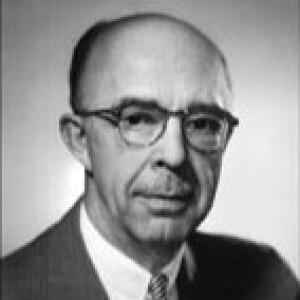
Tuesday Jul 15, 2025
Tuesday Jul 15, 2025
Biographical Bytes from Bala: Laurel Hill West Stories #046
For about 30 years in the middle of the 20th century, medical wisdom had declared that destroying organically healthy brain tissue was a legitimate treatment for varying psychiatric disorders. The concept of psychosurgery dates back to the Neolithic period but became more prominent in the 19th and 20th centuries.
The champion for destroying healthy brain tissue was a Philadelphia born-and trained neurologist Walter Freeman, who performed the procedure several thousand times.
Robert A. Groff, MD, also trained at Penn, as well as under the legendary Harvey Cushing in Boston. Toward the end of his legendary career, he was convinced to perform a lobotomy on a patient who had already failed the procedure once. Groff did it twice, and when the patient and his mother were disappointed by the results they sued. But Dr. Groff died after giving his deposition, but before his case came to trial.
This podcast gives a history of psychosurgery, starting with trepanning, and covers it through the horror days of blind lobotomies with a butter knife to present-day stereotactic deep stimulation techniques.
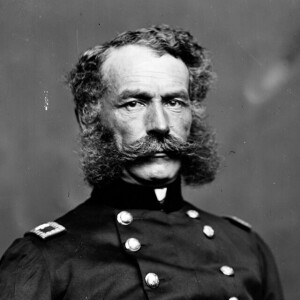
Sunday Jul 06, 2025
Sunday Jul 06, 2025
All Bones Considered: Laurel Hill Stories #076, part 5
Philadelphian Henry Naglee was a West Point graduate who fought in Mexico, the West, and the Civil War. He took a liking to the West Coast and built the first permanent commercial structure in San Francisco, installed vineyards that produced the finest brandy in the country, and is namesake for the Naglee Park section of San Jose. But he was a scoundrel with women, one of whom repaid him by publishing his love letters and his self-portrait of doing naked pushups on his bathtub. General Naglee is interred in the South segment of Laurel Hill East.
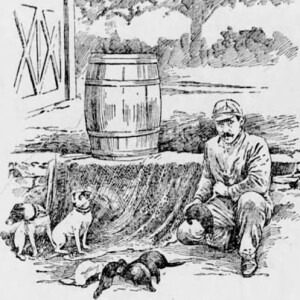
Saturday Jul 05, 2025
Saturday Jul 05, 2025
All Bones Considered: Laurel Hill Stories #076, part 4
Rat Catcher Lou Bossle was proud of his profession - it is even carved onto his Laurel Hill West tombstone. Twice in the 1890s, Philadelphia newspapers sent a reporter to keep him company in rat-infested basements while he was on the job.
I'll tell you about the long relationship between humans and rats, and share some of the methods used by ratcatchers of yore.
If you're a little squeamish, this one might make you squeam.
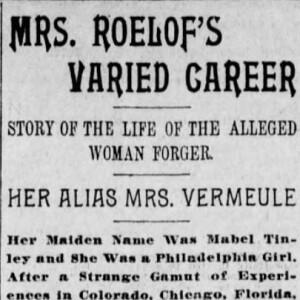
Friday Jul 04, 2025
Friday Jul 04, 2025
All Bones Considered: Laurel Hill Stories #76, part 3
Mabel Tinley was a Philadelphia-born con woman with a hypnotizing gaze who worked her way into New York Society with boldness and beauty. Fellow cemetery historian Tom Keels tells her remarkable story and suggests an inscription for her stone - should she ever get one.
Here Lies
MABEL TINLEY
AKA
Mrs. Richard W. Roelofs, Fickle Wife and Inattentive Mother,
Lasca Vega, Vaudeville Vamp,
Louise Vermeule, Serial Shopper,
Mrs. John (Catherine Stuyvesant) Van Ness Roberts, Buddy of Big Apple Bluebloods,
And a host of other aliases, too numerous and transitory to mention.
R.I.P.
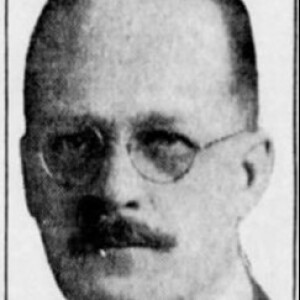
Thursday Jul 03, 2025
Thursday Jul 03, 2025
From All Bones Considered: Laurel Hill Stories #076
This segment of the podcast talks about the evolution of the diagnosis of Post Traumatic Stress Disorder from nostalgia and soldier's heart to shell shock and battle fatigue and the thousand yard stare.
W. Griffin Gribbel was a wealthy Chestnut Hill businessman and Great War veteran whose wealth, career, and family could not save him from his post-war nightmares. His behavior often got so out of control that he had to be confined in an asylum. After a minor plane accident in 1929, he threatened everyone in his house with his collection of firearms. When a police officer came to the house to help take him away, Gribbel shot and killed the man, but was acquitted at his trial. Several years later, he stabbed a waiter in the throat at a local hotel. He is interred at Laurel Hill West.
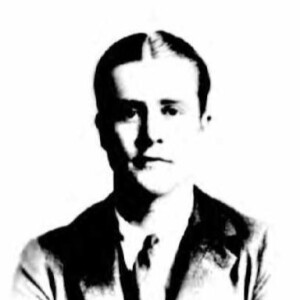
Wednesday Jul 02, 2025
Wednesday Jul 02, 2025
All Bones Considered: Laurel Hill Stories #076, part 1
Morton McMichael Hoyt was named for his great-grandfather the mayor. His sister, Elinor Wylie, was a famed poet and author. Before he had turned 21, he married Jeanine Bankhead, older sister of up-and-coming actress Tallulah. When the marriage failed, they tried again. And then a third time. Then there's the time he jumped off a steamship on a bet ... or was it a dare ... to impress a 17-year-old. And he was captured by the Nazis in 1942 and spent the war in a German concentration camp. His ashes were consigned to earth at Laurel Hill West.
Tuesday Jul 01, 2025
Tuesday Jul 01, 2025
All Bones Considered: Laurel Hill Stories #076
The July 2025 episode tells of five people who really didn’t fit anywhere else.
Morton McMichael Hoyt married the same woman three times and once jumped off a steamship to impress a 17-year-old girl.
Major Wakeman Griffin Gribbel was gassed and wounded during the Great War; during one of several psychotic breaks, he mortally wounded a police officer, but a jury found him “not guilty.”
Fellow guide and amateur cemetery historian Tom Keels tells the rollicking story of Mabel Tinsley, one of the great con artists of the Gilded Age.
Louis Bossle was the city’s best-known ratcatcher; when he died, his nickname “Ratcatcher Lou” was carved on his obelisk.
Tom Keels returns for a segment on one of our Civil War generals Richard Naglee, whose California vineyards made the finest brandy in the land, but whose amorous ventures got him in deep trouble more than once.
These five people come together under one podcast on July 1st, then each individual gets their own podcast on the 2nd through the 6th.
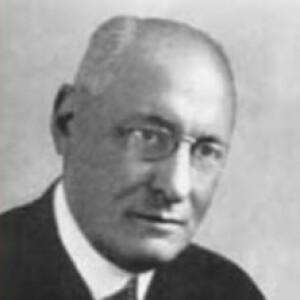
Sunday Jun 15, 2025
Sunday Jun 15, 2025
Biographical Bytes from Bala #045 for mid-June 2025
The card games whist and bridge arrived in Victorian Philadelphia and captivated its upper-class population. Bridge clubs formed all over town, but people soon realized the man in the know was Milton C. Work, a Philadelphia lawyer. A scoring system that Work popularized for contract bridge remains the one that most players use today.
Learn about the history of playing cards, the development of bid games, and a lot more on this month's episode.
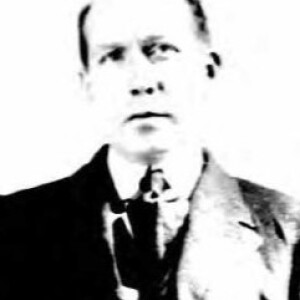
Friday Jun 06, 2025
Friday Jun 06, 2025
All Bones Considered: Laurel Hill Stories #075, part 4
Baron von Munchausen was a German military man who traveled the country spreading his tales of wonder, which always featured himself in the role of a hero. Clarence Wiener came from a wealthy Philadelphia family. He started to burnish his reputation during his brief stay at Harvard. Eventually, truth and fiction blended together. His widowed mother married an American-born violin teacher who was also a Baron. When Clarence died, he ended up in an unmarked grave in the family plot.
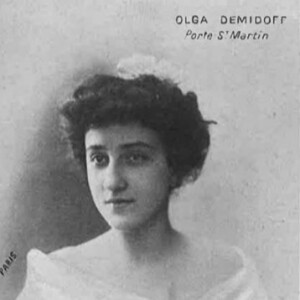
Thursday Jun 05, 2025
Thursday Jun 05, 2025
All Bones Considered: Laurel Hill Stories #75, part 5
Princess Olga Demidoff was from one royal family and married into another, the house of Trubetskoy. She eventually married Philadelphia archeologist Edward Stoever, but supported herself as both an escort and as madame in a high-end New York brothel. Her name is on the tombstone, but she is located on an island off of Spain.
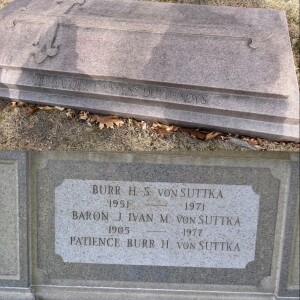
Wednesday Jun 04, 2025
Wednesday Jun 04, 2025
All Bones Considered: Laurel Hill Stories #075, part 3
In Paris before the Great War, he was known as Roberto Carles Eskens, but acquired the title of “The Marquis D’Eskens de Frenoys.”
Baron James Ivan Michael von Suttka was born in Canton, Ohio, and claimed to be an Olympic caliber pistol shot.
Both men married rich American women. It is difficult to prove whether their titles were authentic.
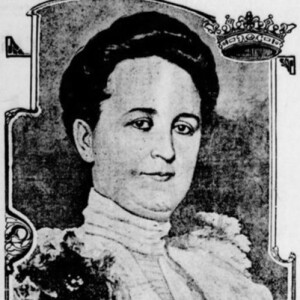
Tuesday Jun 03, 2025
Tuesday Jun 03, 2025
From all Bones Considered: Laurel Hill Stories #075, part 2
Elizabeth "Libby" Shindler was an Indiana farm girl / schoolteacher who caught the eye of philanthropist / hatmaker John B. Stetson and became his third wife. When left a widow with several million dollars, she was pursued and captured by a Portuguese nobleman who was not quite what he claimed.
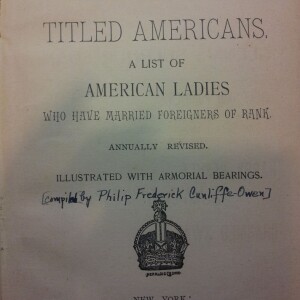
Monday Jun 02, 2025
Monday Jun 02, 2025
All Bones Considered: Laurel Hill Stories #075, Part 1
In the last quarter of the 19th century, there was a surge in marriages between European nobility and American heiresses as families exchanged money for titles. These women became known as "dollar princesses," and soon your east coast soiree was not complete without a contessa or marchioness to add to the flavor.
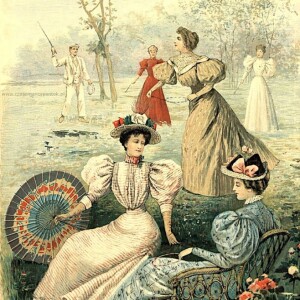
Sunday Jun 01, 2025
Sunday Jun 01, 2025
All Bones Considered: Laurel Hill Stories #075
In the late 19th and early 20th century, more than 450 American heiresses traded their fortunes for a European title; they were called "dollar princesses."
Elizabeth Shindler Stetson was the hatmaker's third wife who married into a Portuguese title.
Roberto Carles Eskens claimed Belgian nobility as Marquis d'Eskens de Frenoys; or was he a German valet with a good story and a vivid imagination?
James Ivan Michael von Suttka has "Baron" on his headstone and "Olympic medalist" in his obituary; neither was true.
Clarence Wiener was a peripatetic military gadfly who claimed innumerable medals and honors for himself; he was especially upset when his wealthy widowed mother married Baron von Graetner. Wiener was in a category of story tellers as enthralling as the Baron von Munchausen.
Princess Olga Demidoff Troubetzskoy Stoever was from a royal Russian family and married into another. She was married to Philadelphia archeologist Stoever and her name is carved on his stone. Fate had other plans for the princess.
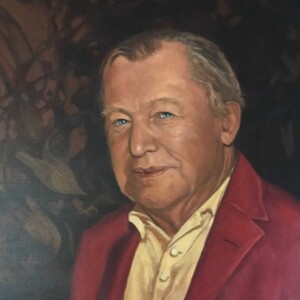
Wednesday May 14, 2025
Wednesday May 14, 2025
Biographical Bytes from Bala: Laurel Hill West Stories #044 for mid-May, 2025
John W. “Jack” Merriam made his fortune in real estate development – Oxford Valley Mall, Cedarbrook Apartment Complex, and many others. Among his acquisitions was the Curtis Publishing Building on Washington Square, with its magnificent Maxfield Parrish / Louis Comfort Tiffany glass mosaic in the lobby. Another was Maybrook Castle next to the Wynnewood Train Station on the Main Line. He was namesake for the Merriam Theater on South Broad Street, and he left tens of millions of dollars in support of local art institutions. Yet despite his massive wealth Jack Merriam and his wives are interred under a simple flat bronze marker at Laurel Hill West.
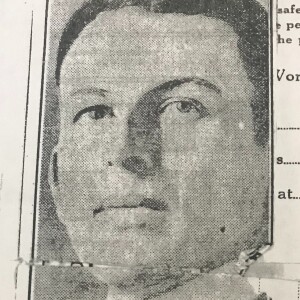
Tuesday May 06, 2025
Tuesday May 06, 2025
From All Bones Considered: Laurel Hill Stories #074, part 5
2LT Elisha Kent Kane Wetherill was a PAFA-trained artist who specialized in landscapes and beach scenes. He joined the Army in 1915 and served during the Battles of Ypres and the Somme. While he survived a gas attack, his lungs were apparently damaged, which led to his premature death in 1929.
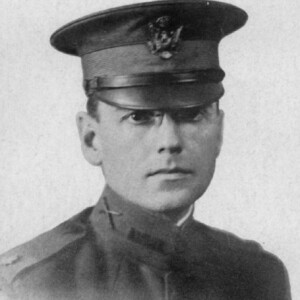
Monday May 05, 2025
Monday May 05, 2025
All Bones Considered: Laurel Hill Stories #074, segment 4
Alfred Reginald Allen, MD, was a UPenn med school grad, a clever researcher in neurologic injuries, a brilliant composer of operas and hymns, founder of the Savoy Company, and one of the finest photomicrographers in the world. But when he joined the Army, it was as a combat officer. He was killed, ironically, by shrapnel to his brain at Meuse Argonne. He has a cenotaph at Laurel Hill East.
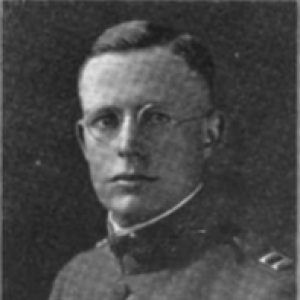
Sunday May 04, 2025
Sunday May 04, 2025
All Bones Considered: Laurel Hill Stories #074, segment 3
CPT Alan Wood Lukens was variously reported as killed in action, missing in action, hospitalized at an unknown site in France, and possible prisoner of war. He had been killed in action in September, but it took the Lukens family until January to determine what had really happened to Allen. He was awarded a posthumous Distinguished Service Medal
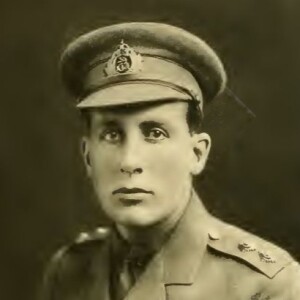
Saturday May 03, 2025
Saturday May 03, 2025
All Bones Considered: Laurel Hill Stories #074, section 2
1LT Dillwyn Parrish Starr joined the military long before the United States entered the war. He had been a football star at Groton and at Harvard. He ended up with the Coldstream Guard where he was killed in action during the Battle of Somme. He is buried in France, but his family has added his name to their stone at Laurel Hill East.
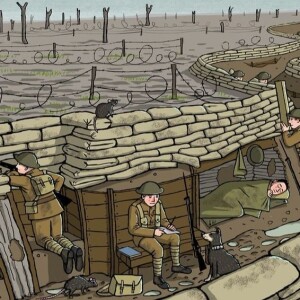
Friday May 02, 2025
Friday May 02, 2025
Excerpt from All Bones Considered: Laurel Hill Stories #074, part 1
The United States tried to stay out of the European conflict that started in 1914 but eventually joined the fray. Philadelphia, "The Workshop of the World," provided doughboys with blankets, footwear, and head gear. By the time the US Congress declared war in April, 1917, hundreds of Americans had already been fighting, and many had died, the first of more than 125,000 Americans to die, including 1400 Philadelphians, in what many thought would be the "war to end all wars."
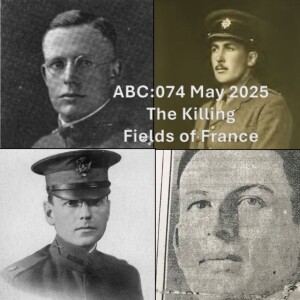
Thursday May 01, 2025
Thursday May 01, 2025
All Bones Considered: Laurel Hill Stories #074
The United States was dragged into a war that it seemed nobody wanted, but that was inevitable anyway. Philadelphia produced massive amounts of materials for the American doughboys.
1LT Dillwyn Parrish Starr was impatient for action. He joined Britain’s esteemed Coldstream Guard and was readily accepted by them. He was killed at the Battle of the Somme before the United States even got officially involved.
CPT Alan Wood Lukens came from two families of steel mongers. Although he was killed in late September of 1918 at Meuse Argonne, his family did not discover the truth until several months later. Lukens was awarded a Distinguished Service Cross posthumously.
MAJ Alfred Reginald Allen trained as a research neurologist and became one of the best photomicrographers in the country. He wrote operas, overtures, and hymns, and he founded the Savoy Company to perform the operettas of Gilbert & Sullivan. Yet when he volunteered for war service, it was as an officer in the Army.
2LT Elisha Kent Kane Wetherill trained at PAFA and in Paris with James Whistler. He was apparently wounded by poison gas and spent the last few years of his life suffering from its effects.
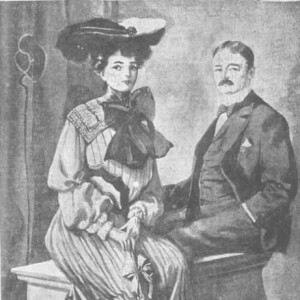
Tuesday Apr 15, 2025
Tuesday Apr 15, 2025
Biographical Bytes from Bala: Laurel Hill West Stories #043
Polish born violinist Timothee Adamowski was soloist with the Boston Symphony Orchestra for many years and served as one of the first conductors of the Boston Pops Orchestra. For many years his name was romantically linked with that of famed Australian soprano Nellie Melba, but he surprised everyone when he married Gertrude Pancoast of a famed Philadelphia medical family. Timothee is interred in the Pancoast family plot at LHW.
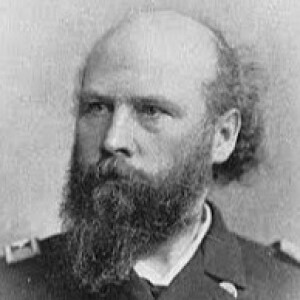
Sunday Apr 06, 2025
Sunday Apr 06, 2025
From All Bones Considered: Laurel Hill Stories #073, part 5
George W. Melville was the MacGyver of his day, seemingly creating something out of nothing when the situation called for it. As an engineer he was unsurpassed. He was one of only a few survivors of the ill-fated attempt to reach the North Pole by the ship Jeannette, captained by George DeLong. He then went back to recover the bodies of those who had been left behind. He has a statue at the Naval Yard and was twice painted by Thomas Eakins.
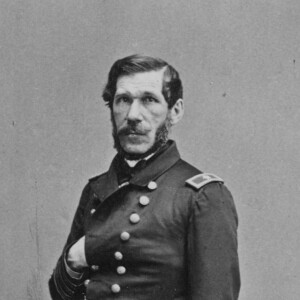
Saturday Apr 05, 2025
Saturday Apr 05, 2025
From All Bones Considered: Laurel Hill Stories #073, part 5
Admiral Sylvanus William Godon spent his life in the Navy. The high point was probably the capture of the USS Erie with its cargo of 897 enslaved Africans. The captain of that ship, Nathaniel "Lucky Nat" Gordon, went to the gallows for his crime.
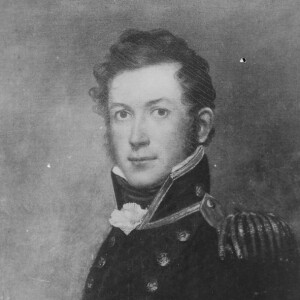
Friday Apr 04, 2025
Friday Apr 04, 2025
From All Bones Considered: Laurel Hill Stories #073, part 4
Commodore David Conner was responsible for the successful amphibious landing of 12,000 men at Vera Cruz during the Mexican American War. His presentation sword and two medals are on display in the Cincinnati Room of the Hill - Physick - Keith House, along with a fine portrait.
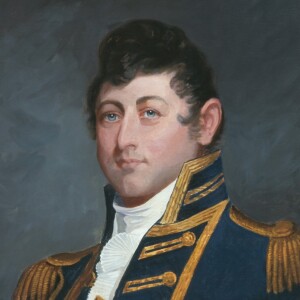
Thursday Apr 03, 2025
Thursday Apr 03, 2025
From All Bones Considered: Laurel Hill Stories #073, part 2
Isaac Hull was a lifelong sailor from a family of sailors. He is best remembered today for being commander of the USS Constitution when it captured HMS Guerriere during the War of 1812. Fellow tour guise Russell Dodge wrote this script and the life of this great seaman.

Wednesday Apr 02, 2025
Wednesday Apr 02, 2025
From All Bones Considered: Laurel Hill Stories #073, part 1
The United States tried very hard to not have a Navy. It wasn't until the early 19th century that congress realized the need for a fighting force on the water. Capture of American merchant ships by the Barbary pirates and corsairs with letters of marque forced congress to release funds to fortify the Navy. Eventually the United States Navy was second only to the Royal Navy of England.
Commodore Isaac Hull was captain of the USS Constitution when it defeated RMS Guerriere in the War of 1812.
Commodore David Conner worked with Army General Winfield Scott to arrange the massive successful amphibious landing at Veracruz during the Mexican American War, which led directly to the taking of Mexico City a few months later.
Rear Admiral Sylvanus William Godon spent his life in the Navy and while a member of the African Squadron captured the slave ship Erie which led to the hanging of its skipper Nathaniel Gordon, the only man executed by the government for being in the slave trade.
Admiral George Melville was another Navy lifer. After he led a group back to civilization in the aftermath of the wreck of the SS Jeanette, he stayed in long enough to reach the rank of admiral. All four of these men are buried at Laurel Hill East.
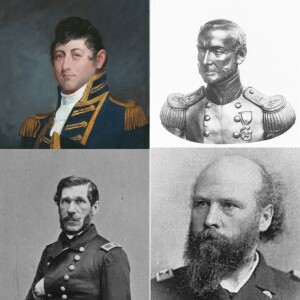
Tuesday Apr 01, 2025
Tuesday Apr 01, 2025
Isaac Hull led USS Constitution to victory against HMS Guerriere in the early days of the War of 1812. Fellow tour guide Russ Dodge wrote this script but declined the opportunity to narrate it.
David Conner worked with Winfield Scott to arrange the largest amphibious assault of the 19th century at Vera Cruz during the Mexican American War.
While serving in the African Squadron, Sylvanus Godon captured the slave ship Erie, which led to the return of nearly 900 Africans to their home continent, and the hanging of “Lucky Nat” Gordon, the only man to be executed by the Government for buying and selling human beings.
George W. Melville was a genius engineer and Arctic explorer who was among the survivors of the doomed USS Jeannette Polar mission in 1879-1881.
Four men who spent their lives on the ocean and had startling tales to tell of their adventures in this month’s episode of All Bones Considered: Laurel Hill Stories #073 for April 2025 – Four Naval Heroes: Isaac Hull, David Conner, Sylvanus Godon, and George Melville.
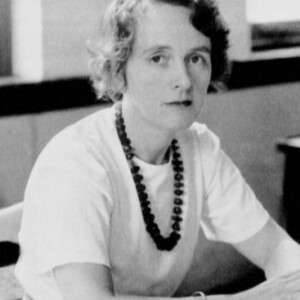
Thursday Mar 20, 2025
Thursday Mar 20, 2025
Biographical Bytes from Bala #042, section 5
Dorothy Burr Thompson ("DBT") was acknowledged as one of the best archeologists of her day. Her work of Hellenistic terra cottas has never been surpassed. Her younger sister Pamela Burr wrote a play while at Bryn Mawr that featured her classmate, Katharine Hepburn.
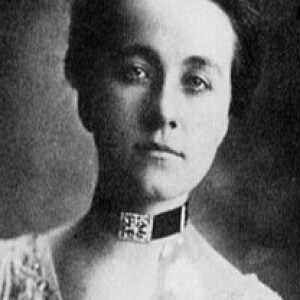
Wednesday Mar 19, 2025
Wednesday Mar 19, 2025
Biographical Bytes from Bala #042, section 4
Anna Robeson Burr Brown was an American writer of novels, poetry, stories, essays, and biographies. Her The Autobiography: A Critical and Comparative Study (1909), was the first book on the subject.
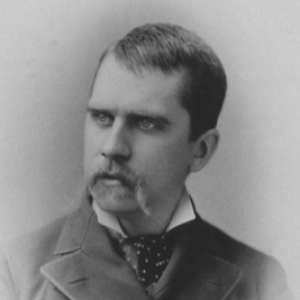
Tuesday Mar 18, 2025
Tuesday Mar 18, 2025
Biographical Bytes from Bala #042, section 3
Henry Armitt Brown became the finest orator of his generation, frequently compared to Henry Clay and Daniel Webster. His life was cut short only weeks after his greatest triumph.
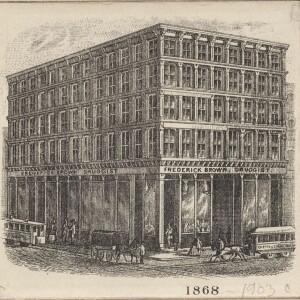
Monday Mar 17, 2025
Monday Mar 17, 2025
Biographical Bytes from Bala #042, section 2
Frederick Brown was a very successful druggist and a founder of the Philadelphia College of Pharmacy. When his friend John Jay Smith invited him to be a founder at Laurel Hill Cemetery, he accepted the offer.
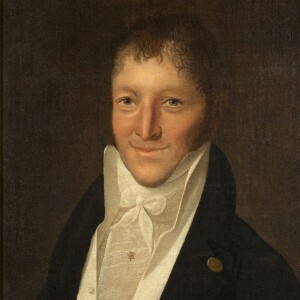
Sunday Mar 16, 2025
Sunday Mar 16, 2025
Biographical Bytes from Bala #042, section 1
Charles Brockden Brown is regarded by scholars as the most important American novelist before James Fenimore Cooper. His best-known works include Wieland and Edgar Huntly, both of which display his characteristic interest in Gothic themes. His works heavily influenced both Mary Bysshe Shelley and Edgar Allen Poe.
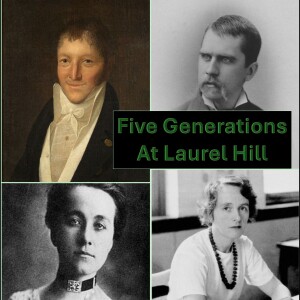
Saturday Mar 15, 2025
Saturday Mar 15, 2025
Charles Brockden Brown was American’s first successful novelist. his influence on Edgar Allen Poe was immeasurable. He has a cenotaph in the South section of Laurel Hill East.
Charles' nephew Frederick Brown was a successful druggist because of his ginger root-based nostrums. He was also one of four co-founders of Laurel Hill Cemetery.
Frederick's son Henry Armitt Brown was considered the best orator of his generation and often compared to Henry Clay and Daniel Webster.
Henry's daughter Anna Robeson Brown Burr was a highly successful author with more than two dozen books to her name, both fiction and nonfiction.
Anna's daughter Dorothy Burr Thompson got her PhD from Bryn Mawr and was one of the best-known archeologists in the country. Pamela Burr, younger by 5 years, wrote a play which featured her Bryn Mawr classmate Katharine Hepburn.
Frederick and Henry are buried at Laurel Hill East, while Anna, Dorothy, and Pamela are at Laurel Hill West.

Thursday Mar 06, 2025
Thursday Mar 06, 2025
From All Bones Considered: Laurel Hill Stories #072, segment 5
A slight reworking of an earlier podcast about Cecil Kent Drinker, MD, (All Bones Considered: Laurel Hill Stories #041) now features his wife Katherine Rotan Drinker, MD, as they take on the investigation of "jaw rot" among young women who had worked as painters of luminescent watch dials.
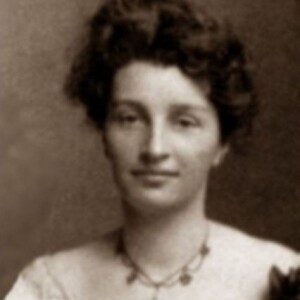
Wednesday Mar 05, 2025
Wednesday Mar 05, 2025
From All Bones Considered: Laurel Hill Stories #072, segment 4
By 1921, Women's Medical College was on the verge of failure. The new president Sarah Logan Wister Starr was a master fundraiser who treated Women's Medical School and its hospital as her private philanthropic project. She did save the school, but she infuriated both faculty and student body when she fired the popular professor of obstetrics and gynecology Alice Weld Tallant.
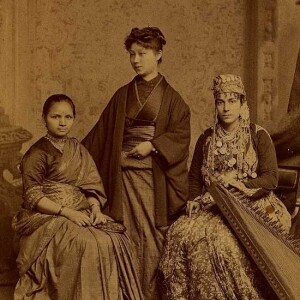
Tuesday Mar 04, 2025
Tuesday Mar 04, 2025
All Bones Considered: Laurel Hill Stories #072 - Segment 3
In the mid-19th century, women from around the world flocked to Philadelphia in order to become physicians.
Everyone has seen the Frederick Gutekunst photo of three medical students from India, Japan, and Syria.
Charlotte Yhlen came from Sweden and became the first Scandinavian-born woman physician but couldn't get work in her home country so returned to the United States.
Marie K. Formad was from Russia. She became one of the premiere gynecologic surgeons in the country.
Drs. Yhlen and Formad are buried at Laurel Hill West.
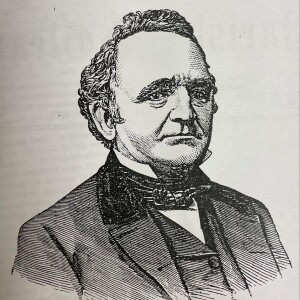
Monday Mar 03, 2025
Monday Mar 03, 2025
From All Bones Considered: Laurel Hill Stories #072, segment 2
William J. Mullen was the first President of Female Medical College of Pennsylvania. He is remembered for his tireless philanthropic work among inmates at Moyamensing Prison and for his over-the-top grave marker in the south section of Laurel Hill East.
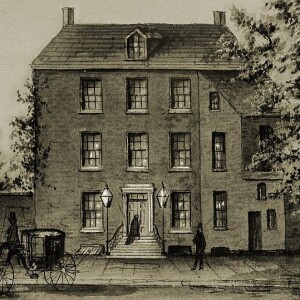
Sunday Mar 02, 2025
Sunday Mar 02, 2025
From All Bones Considered: Laurel Hill Stories #072, segment 1
With the help of several Quaker philanthropists, a medical school for women was chartered in 1850. Through the courage and strength of the founders and early graduates, it slowly grew into a respected medical school whose memory lives today through the Drexel University School of Medicine.
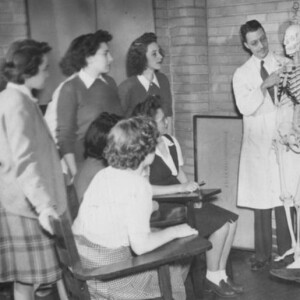
Saturday Mar 01, 2025
Saturday Mar 01, 2025
All Bones Considered: Laurel Hill Stories #072 gives you a condensed history of Women’s Medical College of Pennsylvania. The entire podcast is available on March 1st. Each segment will be released as an individual recording in the days that follow.
First, I will tell you about the founding of the Female Medical College of Pennsylvania in 1850.
Second, I will talk about William J. Mullen, the school’s first President and a major contributor. He is remembered today for his over-the-top grave marker at Laurel Hill East.
Third, I will discuss the notable photograph of three women doctors in their traditional attire, followed by a discussion about Swedish immigrant Charlotte Yhlen and Russian immigrant Marie Formad.
Fourth, I will tell you about the near-mortal wound suffered by Women’s Medical when their new president Sarah Logan Wister Starr butted heads with one of the top surgeons at the hospital, which led to the resignation of the entire surgical staff.
And for dessert, if you missed it, is a slightly modified version of a podcast I did on Dr. Cecil Kent Drinker a few years ago, but now with the emphasis on his wife WMC graduate Dr. Katherine Rotan Drinker.

Saturday Feb 15, 2025
Saturday Feb 15, 2025
Biographical Bytes from Bala: Laurel Hill West Stories #041
John W. Forney was a publisher, a politician, a railroad agent, and the only person to serve as both Clerk of the US House and Secretary of the US Senate. Abraham Lincoln befriended the man, but political enemies called Forney "Lincoln's dog." Andrew Johnson drank to excess at Forney’s Stag party the night before he was sworn in as Vice President and the two men later became bitter enemies. John W. Forney, political gadfly, chameleon, and provocateur is interred in the River Section of Laurel Hill West along with several members of his fascinating family. You will hear about all of them in the February 2025 episode of Biographical Bytes from Bala: Laurel Hill West Stories.
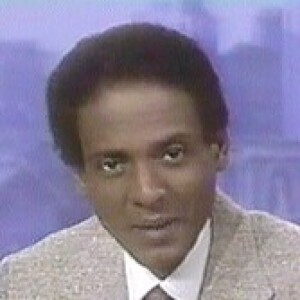
Wednesday Feb 05, 2025
Wednesday Feb 05, 2025
ABC#071, segment 4
John Claver "Jack" Jones was a Philadelphian through-and-through - West Catholic High School, La Salle University. He was befriended by TV announcer John Facenda who got him hired at a local TV station. Jack rose to be evening anchor but died far too young.
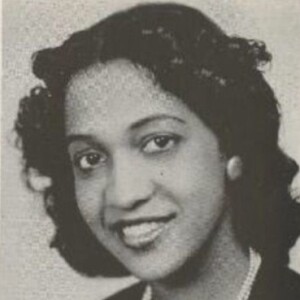
Tuesday Feb 04, 2025
Tuesday Feb 04, 2025
All Bones Considered #071, segment 3
Doris May Harris was a summa cum laude graduate of Howard University who was the third Black woman to earn a law degree from the University of Pennsylvania. She went on to a long and distinguished career on the bench and introduced novel approaches to the punishment and rehabilitation of teen offenders.
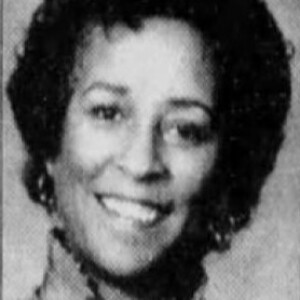
Monday Feb 03, 2025
Monday Feb 03, 2025
ABC#071, segment 2
Florence daVida "Videe" Howard Johnson-Reid steadily worked her way up the ladder of education until she was Dean of Graduate Studies at Cheyney University, whose history dates back to 1837 and the Institute for Colored Youth. Learn about the evolution of education for Philadelphia's African American citizens and more.
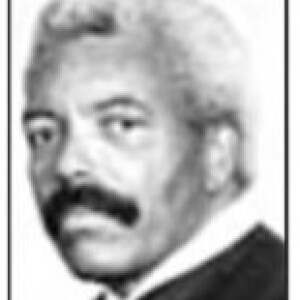
Sunday Feb 02, 2025
Sunday Feb 02, 2025
ABC#071, part 1
Lynwood Blount was a municipal judge who worked his way to the top, including night law school at Temple. He was elected judge after a successful 20-year law career. He was also President of Mercy-Douglass Hospital during its waning years. He did not suffer fools lightly. Along the way he picked up the nickname "Count Blount." He also served as President of Mercy-Douglass Hospital in its final days, so you can learn about medical education for African American Philadelphia residents.








